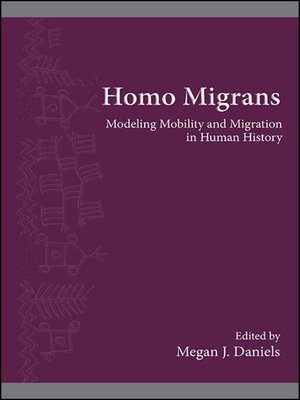Homo Migrans
ebook ∣ Modeling Mobility and Migration in Human History · SUNY series, the Institute for European and Mediterranean Archaeology Distinguished Monograph Series
By Megan J. Daniels

Sign up to save your library
With an OverDrive account, you can save your favorite libraries for at-a-glance information about availability. Find out more about OverDrive accounts.
Find this title in Libby, the library reading app by OverDrive.



Search for a digital library with this title
Title found at these libraries:
| Library Name | Distance |
|---|---|
| Loading... |
Addresses the revolutionary impact of genetics, isotopes, and data science on the study of migration and mobility in past human societies.
One of the most significant challenges in archaeology is understanding how (and why) humans migrate. Homo Migrans examines the past, present, and future states of migration and mobility studies in archaeological discourse. Contributors draw on revolutionary twenty-first-century advances in genetics, isotope studies, and data manipulation that have resolved longstanding debates about past human movement and have helped clarify the relationships between archaeological remains and human behavior and identity.
These emerging techniques have also pressed archaeologists and historians to develop models that responsibly incorporate method, theory, and data in ways that honor the complexity of human behavior and relationships. This volume articulates the challenges that lie ahead as scholars draw from genomic studies, computational science, social theory, cognitive and evolutionary studies, environmental history, and network analysis to clarify the nature of human migration in world history. With case studies focusing on European and Mediterranean history and prehistory (as well as global history), Homo Migrans presents integrated methodologies and analyses that will interest any scholar researching migration and mobility in the human past.







